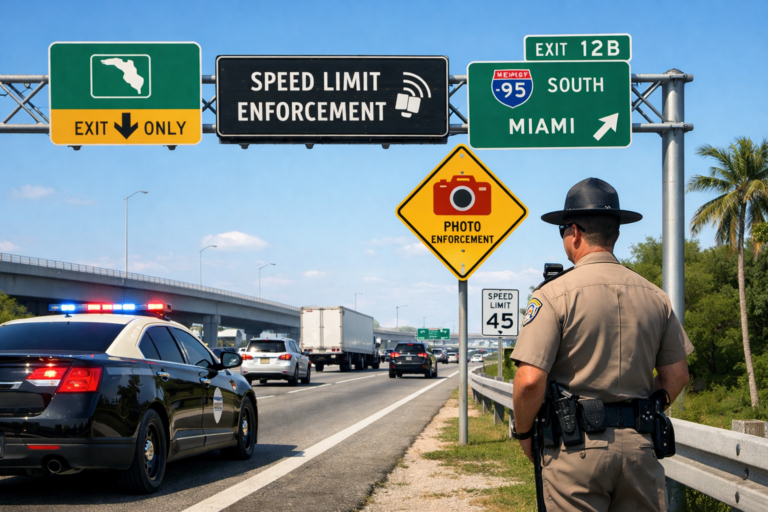In DUI investigations, one of the most common substances besides alcohol involved is marijuana. In some cases, an officer may request a breath test that reveals a low or no blood alcohol content, then suspect the driver was using other drugs like marijuana especially if there is an odor detected or paraphernalia is found. Since marijuana is frequently used in Florida, it often shows up in blood and urine tests.
Recently, Florida passed new laws that have legalized the use of marijuana for people with certain medical conditions. While these laws provide access to patients and caregivers, driving under the influence of the drug is still illegal and has the same serious consequences as any other criminal traffic charge. Please note the penalties below:
Penalties for Driving Under the Influence
Penalties for violating this law vary according to whether it’s a first or subsequent conviction. (Fl. Stat. Ann. § 316.193.)
- First convictions. Defendants will face up to six months in jail, a fine of between $500 and $1,000, or both. (Fl. Stat. Ann. § 316.193(2)(a)(1)(a)& (2)(a)(2)(a).)
- Second convictions. The consequences are up to nine months in jail, a fine of between $1,000 and $2,000, or both; and mandatory placement of an ignition interlock device in the offender’s vehicle for at least one year. (Fl. Stat. Ann. § 316.193(2)(a)(1)(b), (2)(a)(2)(b) & (3).)
- Third convictions within ten years. Defendants with one or more previous conviction within the past ten years are guilty of a third degree felony. Penalties include up to five years in prison, and mandatory placement of an ignition interlock device in the offender’s vehicle for at least two years. (Fl. Stat. Ann. § 316.193(2)(b)(2).)
- Third convictions after ten years. Violators with one or more previous conviction that occurred more than ten years before the current violation will face up to one year in jail, a fine between $2,000 and $5,000, and mandatory placement of an ignition interlock device in the offender’s vehicle for at least two years. (Fl. Stat. Ann. § 316.193(2)(b)(3).)
- Fourth and subsequent convictions. Fourth and subsequent convictions—regardless of when prior convictions occurred—are third degree felonies, punishable with up to five years in prison, and a fine of at least $2,000. (Fl. Stat. Ann. § 316.193(2)(b)(3).)
- DUI causing Death, Serious injury, or property damage. In addition to harsher fines and prison time imposed on DUI offenders who cause death, injury, or property damage; the judge will impose monthly probation reporting requirements, completion of a substance abuse course (including a psychosocial evaluation of the offender), and community service requirements. (Fl. Stat. Ann. § 316.193(3),(5),&(6)(a).) The judge may also order the offender’s vehicle impounded or immobilized. (Fl. Stat. Ann. § 316.193(6)(d).)
DUI Marijuana Laws in Florida
If you have already been arrested for DUI for marijuana or any other type of drug across Florida, then you need a knowledgeable DUI defense attorney or traffic ticket attorney to help you as soon as possible. Individuals who are not impaired in any way should not have to be convicted of DUI simply because trace amounts THC or other metabolites for marijuana were found in their system.
How Blood and Urine Tests Can Show Trace Amounts of Cannabinoids After a DUI Arrest
The blood test and urine test used to detect cannabinoids can identify them for more than two weeks after the consumption occurred for a casual marijuana user or up to one month for a chronic user of marijuana. Different urine tests will evaluate different types of cannabis metabolites but it is difficult to determine when the active ingredient in marijuana was ingested.
Does THC in the Urine or Blood Always Prove DUI or Impairment?
In many cases, urine testing is not viewed as a reliable way to test for THC. Since THC might stay in a user’s system for a long period after use, the test may not be the only way to verify the person was under the influence at the time of the arrest. This is one reason why it’s so important to have a FL traffic ticket lawyer or speeding ticket lawyer to help you with this more complicated aspect of your case. Knowing that you have a traffic ticket lawyer who understands the laws is critical. While you might have been pulled over for another traffic violation in FL, working with an attorney who has experience helping to fight the allegations of drugged driving could have a major impact on your case. You should not wait to get help from a Florida speeding ticket lawyer as soon as possible after you have been accused. The potential consequences of a DUI on your record are more severe than a speeding ticket, but you have to know how to fight the case effectively. That’s where a traffic ticket lawyer comes in.
What You Need to Do If You Are Accused of a DUI for Marijuana
In many different Florida DUI marijuana cases, your lawyer might file a motion to dismiss the entire case since the only drug involved may be marijuana. Furthermore, your lawyer might want this information excluded from the case if the charges do go forward.
It is possible for tests to produce false positive for legal products in your system including pain medications in addition to over the counter supplements. Some medical conditions can also lead to false positives including liver disease, a kidney infection or diabetes. If you have been accused of driving under the influence of drugs in Florida, it is imperative that you take these allegations seriously even if you believe that they are in no way accurate or reflect that you were under the influence of marijuana at the time that you were pulled over. Contacting a knowledgeable attorney as soon as possible can help you craft a compelling defense that protects you now and well into the future.
Our Florida traffic ticket lawyers are here to help you if you’re facing a traffic violation. Don’t underestimate the impact that a conviction could have on your future- make sure a lawyer helps you immediately. Call 1-800-CITATION for a free consultation.



